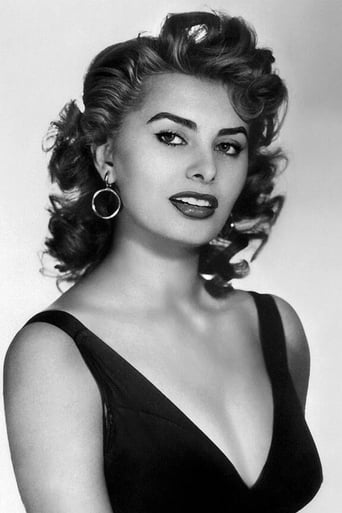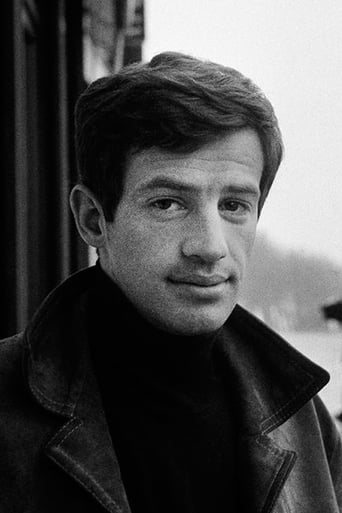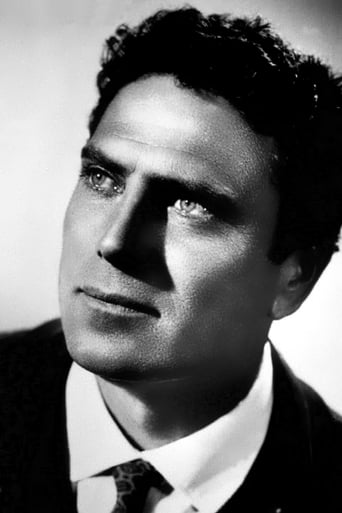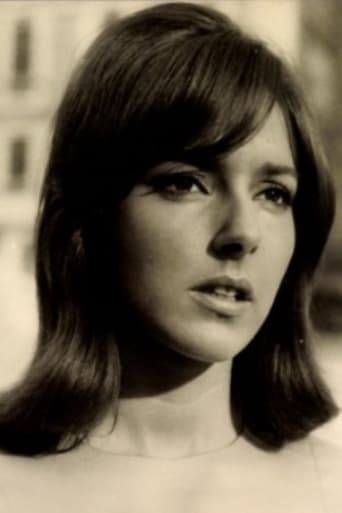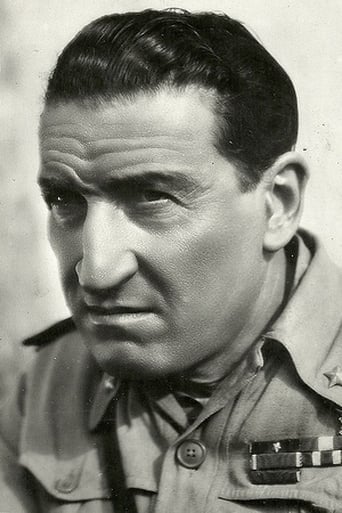Ensofter
Overrated and overhyped
AshUnow
This is a small, humorous movie in some ways, but it has a huge heart. What a nice experience.
Tayloriona
Although I seem to have had higher expectations than I thought, the movie is super entertaining.
Kaelan Mccaffrey
Like the great film, it's made with a great deal of visible affection both in front of and behind the camera.
rowmorg
We're suckers for this Italian realist style, which is another word for Communist film-making. We also love all the great films it has produced around the world in the last 60 years, although needless to say, not in the USA. La Ciociara is a novel written by the immortal Alberto Moravia, who was a Communist MEP for the last dozen years of his life.His story, as interpreted by pioneer film-maker Vittorio De Sica, is told from the point of view of Cesira, an uneducated widow (Sophia Loren, in her Oscar-winning role), who inherited a grocery from her older husband. She admits to her lover: "I did not marry my husband, I married Rome!" The world war is happening and her shop is bombed out by the invading Allies (although it hardly matters by whom). She flees the city with her only child Rosetta, 12 (Eleanora Brown, really 12, who only made a couple more pictures before disappearing from film records). The pair have various adventures trying to reach the Signora's home village, during which the film-makers adroitly illustrate the civil war within the European war, within the world war.Communism is represented, a trifle improbably, by Jean-Paul Belmondo, but the Parisian lothario acquits himself quite well in the role, even acting out the wish-fulfilment of the public and piling on top of Cesira to get a load of that fabulous bust and those magnetic lips, for as long as she will allow, because Cesira is a very feisty lady.The film is suffused with a love of the people, and portrays their daily life in the country affectionately, along with the disruption and misery caused by war. In a memorable scene, a stunned young mother whose child has been killed, offers her nipple in public, saying: "Does anyone want my milk?" This is a foreboding of what is to come, for as the third reel progresses disaster befalls both Cesira and Rosetta, a story feature that has been liberally revealed all over this board, but which I will refrain from blabbing about.This film obeys all the classic rules: the heroine struggles against all odds, even total disaster, and somehow triumphs in the end, even if her victory looks pyrrhic. Ultimately, it is not, for we know that victory will ensue and even the awful sufferings of war will be alleviated, peace will heal the wounds, and Cesira and her lovely daughter will eventually thrive.Many things combine to make this a brilliant picture: the profound political commitment of the film-makers, the genius of Moravia, the brio of Sophia Loren in her greatest part, the love of Italy and its inhabitants. Suffice it to say that when the film began we were horrified by the quality of the print, but even in semi-visible monochrome, the passion still came through. This is one for the classics shelf, to view again and again --- when they come up with a decent print!
MarieGabrielle
I confess that this film was showing late one night on TCM and initially the idea of a war film was not an appealing prospect at one o'clock in the morning.That being said,I realized how much we lose by prejudging film, and actors by their more recent performances. As Sophia Loren was popular before my time, I remember her from fluff and spy movies such as "Arabesque" with Gregory Peck. A forgettable film, at most. Not so for "Two Women".The performance of her innocent daughter Rosetta, is also marked and memorable. Refugees from the bombing of Rome during World War II, Sophia Loren as Cesira, and her daughter are fleeing the city, come across relatives in the country, and encounter a harrowing fate.The feel of the film is palpable and stark, the scene and the shadows of the men as they come across these two women in the effigy of a church, is ominous and effective. The expressions and body language of Loren are heart-rending and sorrowful, as we see her realize what has become of her daughter, what has become of their world. The scene I will remember most is where she is finally rescued, her daughter begins to sing, recovering from the attack. Cesira (Loren) turns her face outward, toward the window, ravaged and ruined, yet finding some strength to continue on. We see a multitude of emotions cross her face without uttering one word.Truly a film not to be missed for Sophia Loren's performance alone. 9/10.
LeRoyMarko
Very bad print (even on DVD), but very good movie. A war film that focuses more on the people who suffer, instead of telling the story of those fighting the battle. It's also a movie about love, relationship, bonding between a woman and her daughter. Sophia Loren's performance is stellar. Belmondo is also very good. Young Eleonora Brown's performance gets better during the film. The last 30 minutes of the movie are poignant. It's heartbreaking to listen to Cesira apologize to Rosetta. Watch it.Seen at home, in Toronto, on February 19th, 2006.81/100 (***)
tooter-ted
I gave this film 9/10 while understanding its weaknesses. First, as others note, the print is the worst I've ever encountered sometimes turning faces into gray pudding, but the problem was not so great to keep me from responding fully to the film's power, and I decided to evaluate the film rather than the print. I have more serious concerns about events at the film's climax which raise issues which are resolved too quickly. In fact these issues might be the subject of a whole new film, and if treated here they would require another hour of play time. The films hasty resolution of these issues makes important behaviors seem poorly motivated and unbelievable. However, the issues in question are not the central issues of the movie. When Cesira apologizes to her daughter (and at other points) I was left sobbing in spite of the film's failure to properly address the daughter's final trauma. This is not a about recovering from trauma. Rather, it is a film about human fallibility and self-deception or, as Michele puts it, "You can't escape, not even from yourself." Cesira faults others while never examining her own behavior. Like those around her, she acts only to preserve her own immediate interests. At the other extreme. Michele's idealism prevents him from realizing his own humanity. Only Rosetta demonstrates the purity to see beyond self-interest, and the instinct to truly tell right from wrong. Her downfall is the tragedy of the film. Yet through all of this the film shows us how, when pushed to extremes, these people are capable of forging deep human bonds. Such bonds have the power to redeem all as they finally redeem Rosetta. I can't conclude without adding my own appreciation for Sophia Loren's extraordinary performance.

